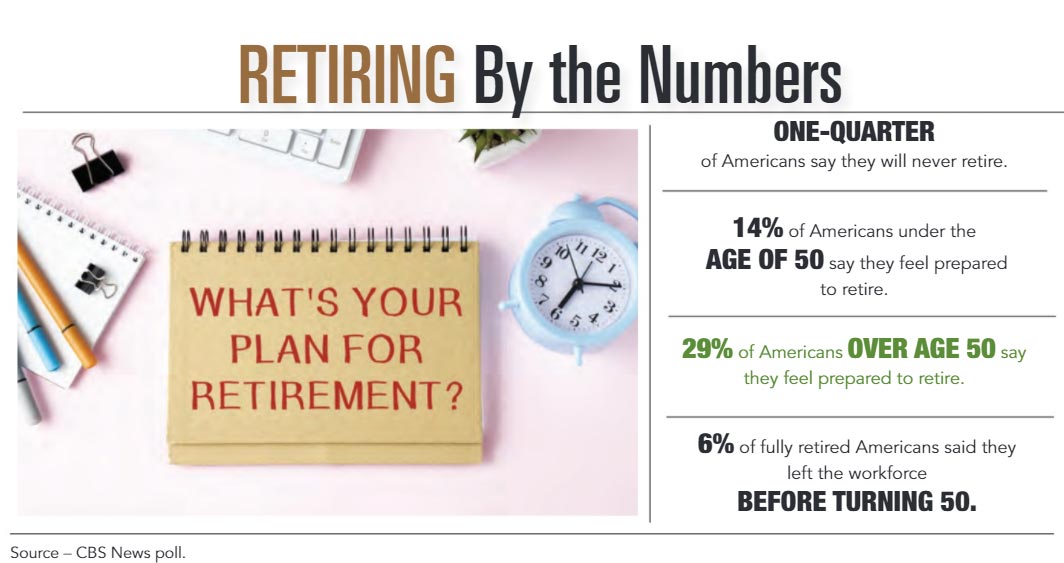It is a well-known fact that a successful career provides a sense of accomplishment and personal satisfaction; therefore, the concept of “never retiring” is likely not surprising to most people.
There are a variety of reasons why modern-day seniors choose to remain actively engaged in the workforce. Robin Finley, a licensed marriage and family therapist for Thriveworks Counseling in Greenville, explained that one of the most prevalent reasons is the need to have a purpose in life.
“Purpose is important for everyone,” Finley said. “Feeling no longer needed, relevant or desired in the world takes a major and notable hit on aging people’s feelings of self-worth.”
According to Finley, having a purpose is important psychologically for many baby boomers. In most cases, peoples’ sense of well-being is markedly improved when they are engaged in an activity that stimulates their mind and keeps their body physically active.
“I do see that many report feeling less mental illness when having a life purpose and accomplishing daily tasks and goals, such as work, as well as staying busy and having structure to their days, weeks and years,” Finley said.
Meanwhile, Ruth Harbin, a clinical counselor and consultant, also has worked with a variety of seniors considering retirement during her tenure at Discovery Center for Life Skills, based in Anderson.
“It seems like folks that are in jobs that are rewarding and work in professions that aren’t strenuous on the body want to stay in those positions longer in order to continue contributing to the community,” Harbin said.
Harbin explained that some people continue working well into their golden years due to an underlying concern of no longer being a productive member of society.
“I think there may be some fear, that ‘If I’m not contributing, what will fulfill my purpose?’” Harbin said. “I think there is a need to serve – a need to be contributing.”
Finley concurred with this thought process, explaining that many of her clients do not feel comfortable leaving the workplace for exactly this reason.
“Many clients report they are fearful they will die sooner if they stop working,” Finley said. “Many have anecdotal evidence to support this within their own social circles.”
Another factor that comes into play in the decision to continue working is the desire to pass on knowledge to the next workforce. Harbin explained that aging workers often find satisfaction in sharing their wisdom with the younger generation.
There is also a social component tied to the decision to remain a lifelong worker. Finley explained that many of her clients feel they gain a great deal of their social support from their place of work. They also feel their identity as a person directly corresponds with what they have done their entire life in their professional career.
On the opposite end of the spectrum are seniors who are opting for early retirement. In many cases, this pool of people is choosing to pursue their travel goals or helping to care for grandchildren or aging parents. In many cases, retirees will pursue creative endeavors, move closer to their families or begin a part-time position in a field that they enjoy.
“Someone might retire from their career job or their skilled job, and then they might continue to work in something different,” Harbin said. “They’re still working and contributing to the community because they want to stay engaged.”
Harbin explained that the COVID-19 pandemic has directly contributed to some seniors’ decisions to leave the workforce. This is often due to the need to learn new technologies, such as working remotely and participating in meetings held on Zoom and similar platforms.
“These new technologies are things they never had to do in their job before,” Harbin said. “They choose to leave gracefully because they don’t want to learn all of these new things.”








